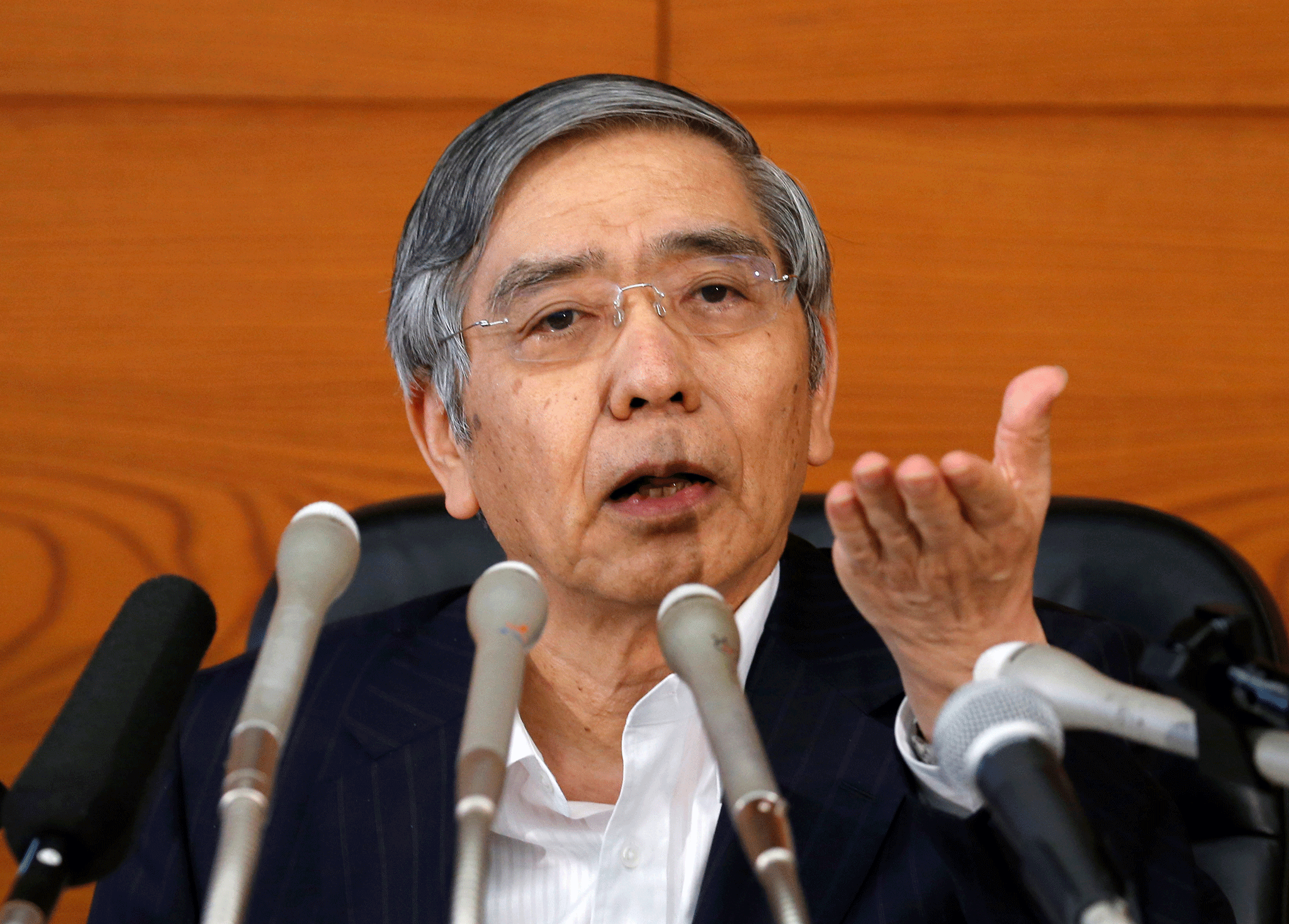Japanese government bonds suffer worst sell-off in 13 years
Japanese bond yields have steadily retreated since the BoJ stunned markets and the government in January by moving to negative interest rates

Japanese 10-year government bonds saw their worst sell-off in 13 years today as investors feared the Bank of Japan may ratchet back the pace of its aggressive government bond buying.
The BoJ disappointed markets on Friday by keeping bond purchases steady, defying expectations it would hoover up more, and made traders even more nervous after announcing it would re-evaluate its policies in September.
Some investors see the policy review as a tacit admission by the central bank that more than three years of monetary easing could be reaching the limit of its effectiveness.
“If they could continue the current policy, then they wouldn't need to do this review thing in the first place,” said Jun Fukashiro, head of fixed income investments at Sumitomo Mitsui Asset Management.
“But it's not clear how they are going to review it, creating a huge uncertainty for markets. For now investors are scaling back their excessive expectations about further cuts in interest rates,” he added.
Japanese bond yields have steadily retreated since the Bank of Japan stunned markets and the government in January by moving to negative interest rates. But they have pulled off record lows in recent sessions on growing worries that the BoJ may be out of ammunition and less inclined to more radical action.
The price of 10-year JGB futures closed down 0.91 point to 151.33, having fallen 2.47 points in the last three sessions, the biggest three-day fall since May 2013.
The 10-year JGB yield hit a four-and-a-half-month high of minus 0.025 per cent and last stood at minus 0.056 per cent, up 23 basis points over four days. The 15-year yield turned positive on Friday for the first time in a month.
The BoJ said it will conduct “a comprehensive assessment” of the economy and the central bank's policy effects at its next meeting in September, on top of its decision to ease policy further by increasing its purchase of exchange traded funds.
But it refrained from increasing its existing bond purchases and from cutting deposit interest rates on bank funds parked at the BoJ deeper into negative territory from the current target rate of minus 0.10 per cent, as some traders had expected.
“Initially the market took the BoJ's review as a pledge to do more easing. But then on second thoughts, it dawned on market players that if the BoJ had been confident about the effects of those steps, it could have done so already,” said a senior trader at a proprietary trading desk at a major Japanese bank.
There is little consensus on what the BoJ will do next month.
But one option which investors think the BoJ is likely to avoid is to cut negative interest rates deeper given the burden negative rates put on banks and the bad reception it has received from politicians who fear a backlash from savers.
Overnight indexed swaps have almost completely priced out a chance of a rate cut in the coming few months.
With an interest cut seen as off the table, shorter maturities with negative yields were sold across the board while longest maturities fared a bit better.
The five-year yield rose as much as 11 bps to minus 0.12 per cent, its highest since mid-March and up 26 bps from a record low of minus 0.380 per cent less than a week ago.
It was last at minus 0.15 per cent, up 8 bps on the day.
The 30-year bond yield rose just 4 bps to 0.315 per cent.
Some investors also think the BoJ could abandon its target of increasing its bond holdings by 80tn yen (£588bn), possibly switching to a targeted amount of bonds it will hold.
In pictures: Japan earthquakes
Show all 20Many investors have thought such a shift may be inevitable as the BoJ will run out of bonds to buy from markets. It is already buying far more JGBs than increases in net issuance.
“If the BoJ moves to a stock-based target from a flow-based target, markets will perceive it as tapering,” said Naomi Muguruma, senior strategist at Mitsubishi UFJ Morgan Stanley Securities.
“If that happens, the 10-year yield is likely to return to the positive territory,” she added.
© Reuters
Subscribe to Independent Premium to bookmark this article
Want to bookmark your favourite articles and stories to read or reference later? Start your Independent Premium subscription today.

Join our commenting forum
Join thought-provoking conversations, follow other Independent readers and see their replies